Search Results for Tag: UN talks
Philippines, Warsaw, Arctic – join the dots
I have very mixed feelings as the UN climate conference gets underway in Warsaw just as the Philippines are devastated by what seems to have been the worst storm ever. The experts tell us climate change is extremely likely to be increasing the severity of extreme weather events. It is not hard to see the possibility of a link. And where does the Arctic come in? Well, the only Arctic headlines at the moment would seem to be the ongoing saga of the Greenpeace activists still under arrest in Russia after the protest at the Prirazlomnaya Arctic oil rig. Connection clear?
Amongst the mixed bag of emotions I am currently shuffling are horror at the extent of the storm devastation in the Philippines, intense sympathy with the victims, helplessness in the face of the huge force of typhoon Haiyan. Then comes deep frustration, verging on anger at the failure of the world’s big emitters so far to take action to reduce emissions and avert what the world’s scientists and the UN tell us will be catastrophic climate change, if we don’t keep to the two degree target. Add to this my complete failure to understand the continuing rush to get oil from the Arctic – regardless of the fact that this would, in turn, contribute further to the vicious circle of climate change.
Some 13% of the world’s remaining undiscovered oil reserves, 30% of its gas are estimated to be in the Arctic. The higher the price of energy, the faster the ice melts, the greater the international interest in a region becoming increasingly accessible as the world continues to warm. At the same time concern is growing amongst those who see development as a threat to the sensitive environment of the High North and the lifestyles of indigenous peoples there – and an increasing risk for the global climate: the burning of more fossil fuels would further intensify global change by producing more CO2 emissions. According to the World Energy Outlook 2012, two thirds of our known fossil fuel reserves would have to remain in the earth, if the goal of limiting temperature rise to two degrees Celsius and averting catastrophic climate change is to be reached.
The harsh nature of Russia’s reaction to the Greenpeace protest at the Prirazlomnaya oil rig in the Arctic demonstrates how important the region has become for the government in Moscow. While Greenpeace has stepped up its campaign to stop oil drilling in the Arctic and have the activists and ship released, the business of Arctic exploration and development just “carries on regardless”. Rosneft, Statoil, Italy’s ENI, Exxon Mobil, Shell… are all active in the Arctic. China and India are also keen. The UK recently unveiled plans to become a hub for Arctic oil exploration. Meanwhile, Greenpeace, is campaigning for the area around the North Pole to be declared a sanctuary and protected from drilling or other industrial exploitation. In addition to environmental campaign groups, the “Fossil Free Campaign” initiated by US American Bill Mc Kibben is gaining influence, trying to persuade companies and institutions to withdraw investments from fossil fuel-related enterprises. Perhaps that will be the way to bring about a change of heart?
Returning to the UN climate talks in Warsaw, my mixed bag of emotions unfortunately does not contain a lot of optimism at the moment. Maybe just a sliver of hope that all is not yet lost. But looking at host country Poland’s record as a coal country and recent statements by its political leaders insisting this would remain so, and bearing in mind that the country has consistently blocked the EU from adopting stricter climate goals (which, admittedly, appears to suit many other member states), it is hard to imagine this conference bringing much in the way of progress. While top emitter China is paying more attention to its environment and climate policies, the country’s rejection of international binding targets makes considerable progress unlikely.
It would be wrong to use the typhoon disaster in the Philippines just to attract more attention to the climate conference in Poland. Clearly getting international aid out to the region has to have top priority. But there is surely a moral imperative to act upon the warnings of our scientists that business as usual is extremely likely to increase the severity of storm and flood events, which hurt the needy worst of all? And would that not have to include the realization that burning fossil fuels is helping to melt the Arctic twice as fast as the rest of the planet – with negative effects not only on the people and ecosystems in the region, but – through feedback effects, sea level rise, increasing ocean acidity etc – on the regulation of the world climate? And thus, that investing in renewable energies and the transition to a green economy makes more sense than Arctic oil exploration?
Greenpeace: Pirates, Hooligans – what next?
If it didn’t involve thirty committed conservationists being imprisoned and intimidated, I might be inclined to see the Russian authorities’ behaviour as something of a farce. Russia has now dropped allegations of piracy, but accused the activists of hooliganism, which still carries a long jail sentence. Pirates? Hooligans? What will they come up with next in their effort to keep the crew of the Arctic Sunrise in jail and hammer home the message that Russia takes its Arctic interests very seriously? The absurdity of the charges against protesters on behalf of an organisation famous for its often spectacular but always unarmed and peaceful demonstrations in the cause of environmental protection tells us a lot about Russia’s attitude towards the Arctic. “Russia takes on Greenpeace – and stakes its claim to the Arctic” is the headline of an article by Simon Shuster for Time World , which suggests Greenpeace met with the disproportionately harsh response because the Arctic oil rig protest came at a time when Russia was asserting its military presence in the Arctic – against a background of growing economic interest. Moscow has opened its first permanent military base in the Arctic since the fall of the Soviet Union. The Greenpeace stunt “gave Russia just the opportunity it needed to underscore the message of Admiral Kololyov (commander of Russia’s northern fleet): Do not tread on the Russian north”, Shuster writes. Indeed.
Shuster quotes Vladimir Chuprov, head of Greenpeace Russia, as admitting the timing of the protest “may have been inopportune”. Greenpeace chief Kumi Naidoo, who was personally involved in a similar protest last year, has stressed the organisation did not expect such a harsh response.There are those who criticize Greenpeace for staging the protest. Greenpeace critic Mika Mered, CEO of Polaris Consulting, writes in a commentary for the Arctic Journal Moscow’s reaction was “perfectly predictable”. Whether it was predictable or not – the treatment of the activists is drawing massive attention to what is happening in the High North. The race is in full swing for access to the Arctic’s resources. Research into the environmental impacts of oil and gas drilling and transport on the fragile Arctic eco-system and the development of technology to cope with a possible oil spill in icy waters are struggling to keep pace with the rapidity of commercial development. The Russian reaction to the Greenpeace protest has drawn widespread media and public attention to the rapidly growing international economic and political interest in the Arctic. More than any scaling of an oil rig alone could ever have done. And in the run-up to the next round of UN climate talks in Poland next month, let us not forget that it is climate change, caused to a large extent by the burning of fossil fuels, that is making the race for Arctic oil and gas possible.(No wonder UN Climate Chief Christina Figueras was reduced to tears by the lack of inaction on climate the other day).
Meanwhile, on a more positive note, a survey conducted by the Kremlin-backed Public Opinion Foundation on October 13th showed that 69 percent of Russians favour making the Arctic region a neutral zone – outside the control of sovereign states. See Moscow Times.
Also worth reading: “High North or High Tension”by retired US Navy Admiral James Stavridis in Foreign Policy.com. If we want to keep the peace in the Arctic, he says, “we have some work to do”.
“Poles apart” on the Arctic?
Intrigued by a tweet from the British Guardian, “Arctic melt means more pirate chases, say Polish climate hosts”, I clicked on to the website of the organisers of this year’s UN climate talks, to be held in the Polish capital Warsaw next month. Alas, the blog where the offending entry had been posted has been temporarily closed, leaving only this message:
“For the time being we decided to take some time away from our blog. Our idea was to focus attention on important issues that need good solutions and spark discussions on those. We did not foresee that some readers would take the presented texts literally as the official Polish position. Notwithstanding we would like to express regret as some of you found the text to be inappropriate. We acknowledge these criticisms. It was certainly not our aim to offend anybody. We will take due care that all new articles and posts on this website are written in a clear and sensitive manner so as to avoid misunderstandings. Stay tuned for more ideas.”
Unbelievable. The people responsible for the COP19 website have not felt obliged to write carefully up to now? People have been able to put their own “non-official” views on there? Well, the aim of “sparking discussions” has certainly been achieved, if not in the way the conference organisers intended. I will have to refer you to the Guardian if your curiosity is aroused as to what was actually on the blog before it was closed. Let it suffice here to quote the possibility mentioned there of “chasing the pirates, terrorists and ecologists that will come to hang around…” in the developing Arctic. No wonder Greenpeace and WWF amongst others called for the post to be removed. “Pirates, terrorists and ecologists”?
Poland’s hosting of the conference is in itself controversial, given that the country receives almost all its electricity from coal. The conference partners listed on the website include PGE, the Polish Energy Group which runs several coal power plants in the country, including the largest coal-fuelled thermal power plant in Europe, Belchatow.
Poland, you will have to smarten up your act and drastically improve your communications in the run-up to a key conference that should pave the way for emissions reductions in the interest of the Arctic and the rest of the planet. Assuming you are taking this issue seriously?
Indigenous unite at Arctic meeting
Alta in far northern Norway was the scene of a key meeting of indigenous representatives from all over the world this week. The meeting was hosted by the Sami, the indigenous people of Scandinavia. The representatives signed a document taking UN member countries to task for “perpetuating the historic marginalization and exploitation of their rights and resources, most recently manifested in the illegal takeover of land by governments and multinational corporations in a race to meet the escalating global demand for food, fuel, fiber and mineral wealth”, according to a statement by Tebtebba. (Indigenous Peoples’ International Centre for Policy Research and Education)
This “Alta Declaration” is part of preparations for the World Conference on Indigenous Peoples which will take place in New York in September 2014. The statement calls on UN members to halt development models which are damaging to the livelihoods and health of indigenous peoples and the environment, “from forests and peatlands to rivers and glaciers that are of great global significance in the battle against the catastrophic effects of climate change”.
The chair of the meeting, Victoria Tauli-Corpuz said “I believe strongly that indigenous people are going to be the one who will save Mother Earth from ending in a disastrous situation”. That is an inspiring thought, but it would be quite a tall order and a huge responsibility to impose on the indigenous peoples, given the contributions the rest of us have been making to pollution and climate change. “We are in a very serious crisis – the environment is very much under stress. We have proven that the remaining ecosystems, the remaining lands and territories, the remaining oceans and waters – those that are still able to provide the basic needs of its populations – are found in our territories”, said Tauli-Corpuz, who heads Tebtebba, which is based in the Philippines.
The Arctic gold rush is clearly affecting Arctic indigenous peoples directly. But as the recent Arctic Council meeting showed, the rest of the world is taking a huge interest in claiming any “benefits” human-induced climate change is producing, in the form of easier access to the region and its resources.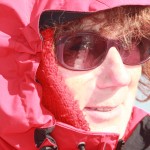
It will also be interesting to observe the positions taken by indigenous peoples in places like Greenland. Wealth from mining or drilling to access resources is a tempting prospect, and could contribute towards increased autonomy. At the same time, there are clearly enormous risks to the environment. Is sustainable development of the “high north” possible at all?
Arctic melt worries UN and White House
The UN weather agency WMO (World Meteorological Organisation) has confirmed that the Arctic’s sea ice melted at a record pace in 2012, the ninth-hottest year on record. With just 3.4 million square kilometres (1.32 million square miles) during the August to September melting season, the sea ice cover was a full 18 percent less than the previous low set in 2007. The WMO’s Secretary-General Michel Jarraud said this was a “disturbing sign of climate change”, and pointed to the link between climate change and extreme weather events.
Meanwhile, a special briefing was called at the White House to discuss the possibility of the Arctic becoming ice free in the summer within just TWO years. Nafeed Ahmed, director of the “Institute for Policy Research & Development” headlines his post for the “Guardian“: “White House warned on imminent Arctic ice death spiral”. He describes the meeting, including NASA’s acting chief scientist Gale Allen, the director of the Department of Homeland Security and the Pentagon as “the latest indication that US officials are increasingly concerned about the international and domestic security implications of climate change”.
10 Arctic specialists were called in to advise the US government, including marine scientist Professor Carlos Duarte, currently director of the Oceans Institute at the University of Western Australia. I met and interviewed Prof. Duarte back in 2011 at the Arctic Frontiers conference, when he worked with the Spanish Council for Scientific Research. At that time, he was already calling for urgent action and warning of the danger of “climate tipping points”, including the melt of the Arctic sea ice. His conclusions are based on research which was presented in an article in Nature Climate Change last year.
The West Australian newspaper quotes Prof. Duarte as saying the “snowballing situation would prove as hard to slow down as a runaway train”. He told the paper the ice melt was accelerating faster than any of the models could predict, and the prospect of an Arctic Ocean free of ice had been brought forward to 2015, compared with a prediction in 2007 that at least a third of the normal sea ice extent would remain in summer in 2100. When I spoke to him in 2011, the US navy was already assuming a date of 2050 and Duarte said he expected it to be even earlier.
Professor Carlos Duarte on Arctic Tipping Points
Prof Duarte also warned of the increasing danger of melting methane. Let me quote a little from the interview:
DUARTE: “We know from the history of ice covering the planet along geological time scales that ice is strongly a non-linear element in the earth’s system. It’s one of the components that show very rapid, very abrupt changes and tipping points. So we expect that once the ice will be lost quickly from the Arctic and also from the shelves in Greenland, then other forces will be set in motion, and many forces will be set in motion by loss of ice. One of them is the release of methane hydrates from the shallow continental shelves, mostly around Siberia, and those are molecules of methane that are trapped into ice in the sediments of the continental shelves and in the permafrost on land. So if this ice melts, this methane can be released abruptly and suddenly. And deposits of methane trapped in the shallow sediments of the Arctic amount to about five times the greenhouse power that humans have set in motion through burning fossil fuels. So if this five times what we have released in 150 years is released within a few years, that would be detrimental to the climate system and it could lead to a very rapid warming, and could again set in motion other forces like increased freshwater discharge to the Arctic, which has already increased by 30 percent. And this involves a greater export of fresh water and buoyancy to the Atlantic, which may affect global circulation and global currents, and those in turn will affect regional climates also further south to the sub-Arctic region. Also, warmer temperatures are leading to dieback of the boreal forest and also the peat deposits in the boreal region are drying up to the extent that they can catch fire.”
(IRENE QUAILE: How close are we?)
DUARTE: “We very much know what the threshold and the tipping point for the release of methanes will be, because the methane is kept in the hydrates, deposits in the salty sediments by ice, frozen sediments, and we know the freezing point of salty sediments may be around minus 1 degree. So when the temperature of water in the summer goes well above freezing point, the hydrates will defrost and the methane will be released. So what we need to monitor is the temperature of the shallow waters in the Siberian shelf and other shallow waters in the Arctic, in the Canadian region as well, and see how close they’re getting to temperatures of 3 and 4 degrees, which will be those that will lead to melting of the hydrates.”
Scary? The interview, it seems, is as relevant as ever, the Professor’s warnings more urgent. I wonder what it feels like to be called in to the White House to brief the government of a country that is both a key player in the Arctic and a top emitter of the greenhouse gases that are causing the melt? On the one hand it must be satisfying for the scientists to know they are finally being heard. But there must also be some frustration about the extent of dangerous climate change that had to be set in motion first. Has the Arctic ice already reached a “tipping point”?
Let me close with another quote from that interview with Carlos Duarte:
DUARTE: “Unfortunately society is much more mobilised by opportunities than by risks. So the discourses and warnings of risks actually almost lead to inaction by society, whereas the sight of opportunities encourages society to set themselves in motion. So the opportunities for economic growth in the Arctic have dominated the discourse and the actions by society and policy makers. Those opportunities are new navigation routes across the Arctic, and the exploitation of oil, gas and fisheries, that were not accessible just a few years ago. The paradox in this is that the Arctic countries recognise that the forces that are improving access to these resources is actually climate change and that the reason for this climate change is the burning of fossil fuels by humans. Arctic nations themselves are responsible for 26% of the release of these greenhouse gases and are taking advantage of these opportunities, which will involve greater emissions of greenhouse gases. (…) I think there should be a balance between the economic growth these opportunities could bring about and the economic losses, they may bring about, which I don’t think have been quantified.”



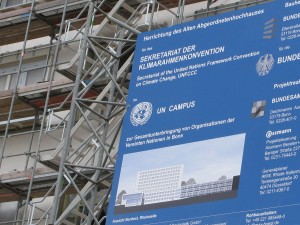
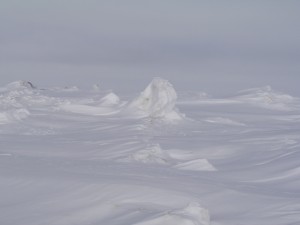

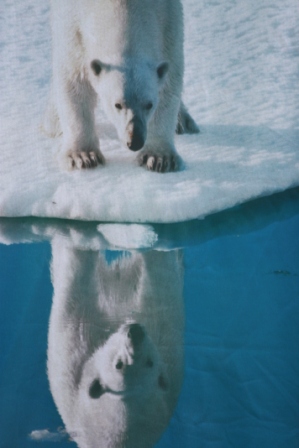
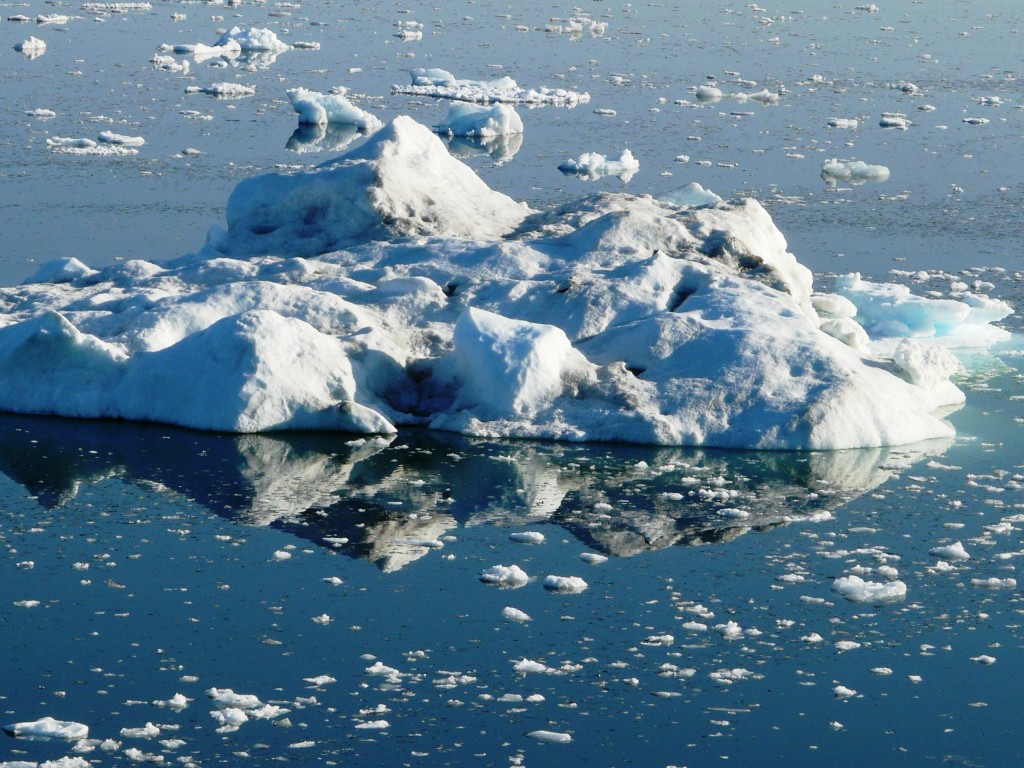
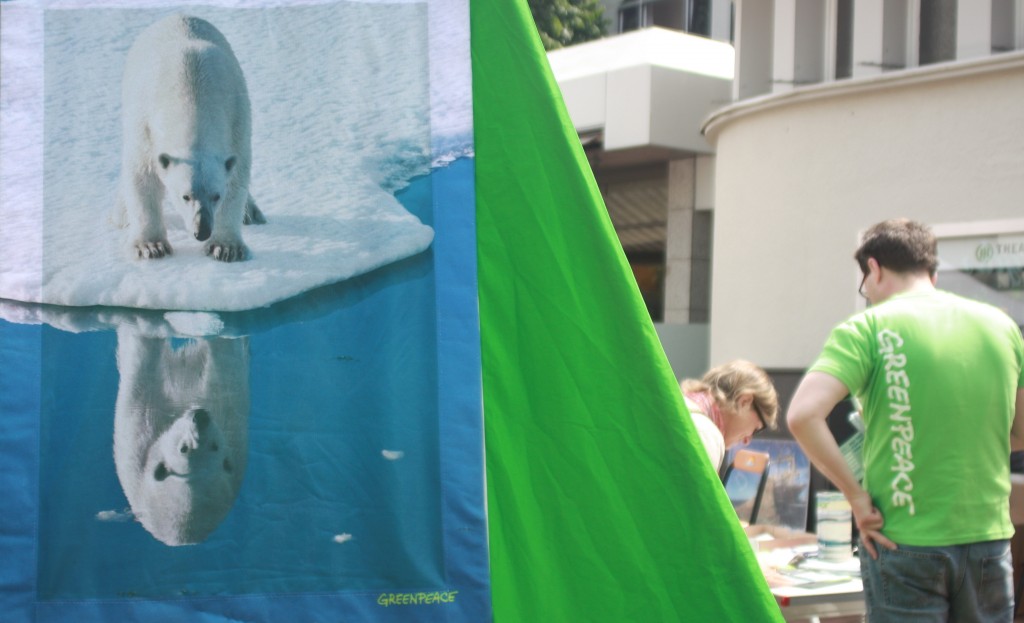
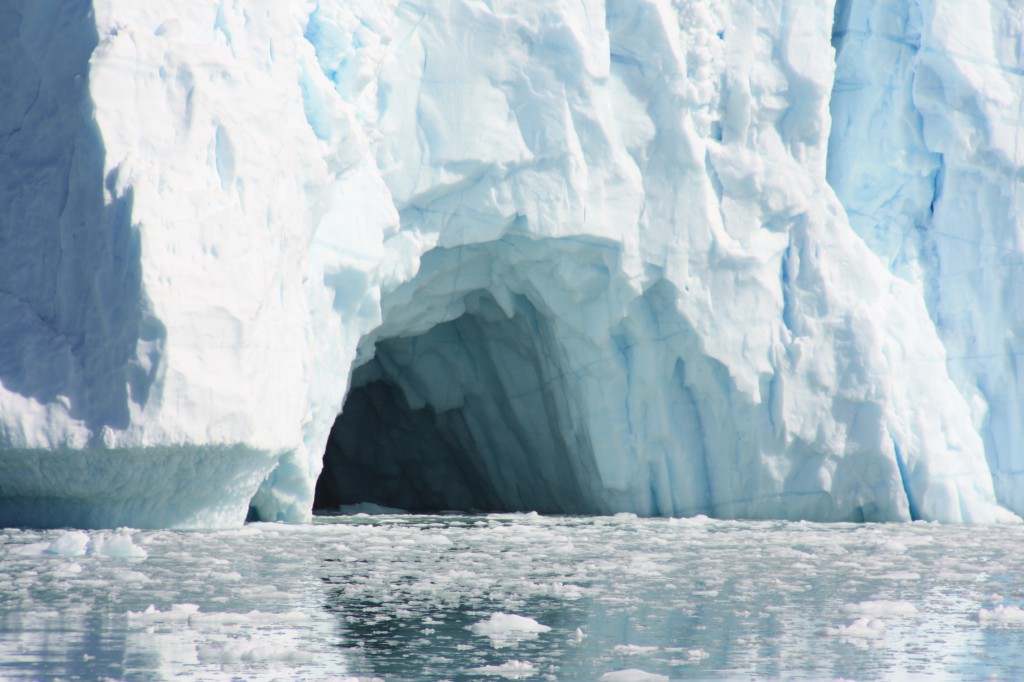
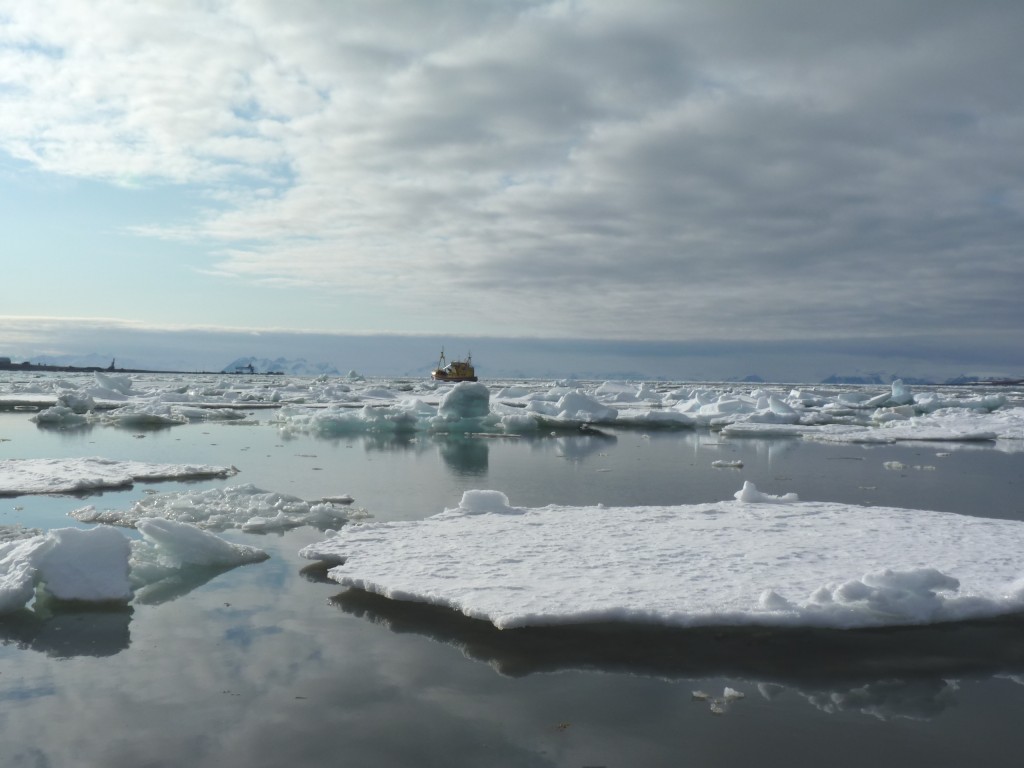
















Feedback